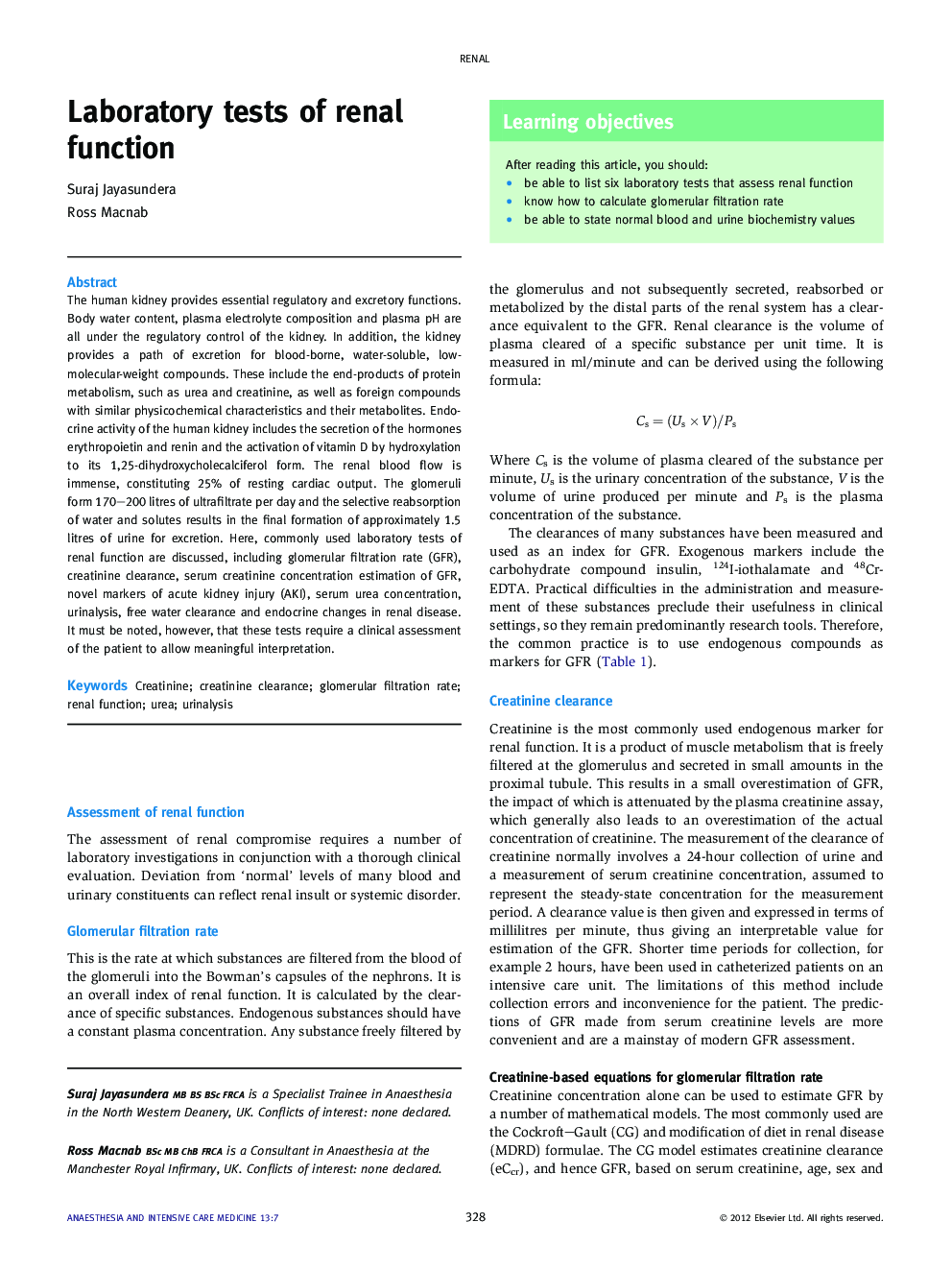| Article ID | Journal | Published Year | Pages | File Type |
|---|---|---|---|---|
| 2743020 | Anaesthesia & Intensive Care Medicine | 2012 | 4 Pages |
The human kidney provides essential regulatory and excretory functions. Body water content, plasma electrolyte composition and plasma pH are all under the regulatory control of the kidney. In addition, the kidney provides a path of excretion for blood-borne, water-soluble, low-molecular-weight compounds. These include the end-products of protein metabolism, such as urea and creatinine, as well as foreign compounds with similar physicochemical characteristics and their metabolites. Endocrine activity of the human kidney includes the secretion of the hormones erythropoietin and renin and the activation of vitamin D by hydroxylation to its 1,25-dihydroxycholecalciferol form. The renal blood flow is immense, constituting 25% of resting cardiac output. The glomeruli form 170–200 litres of ultrafiltrate per day and the selective reabsorption of water and solutes results in the final formation of approximately 1.5 litres of urine for excretion. Here, commonly used laboratory tests of renal function are discussed, including glomerular filtration rate (GFR), creatinine clearance, serum creatinine concentration estimation of GFR, novel markers of acute kidney injury (AKI), serum urea concentration, urinalysis, free water clearance and endocrine changes in renal disease. It must be noted, however, that these tests require a clinical assessment of the patient to allow meaningful interpretation.
